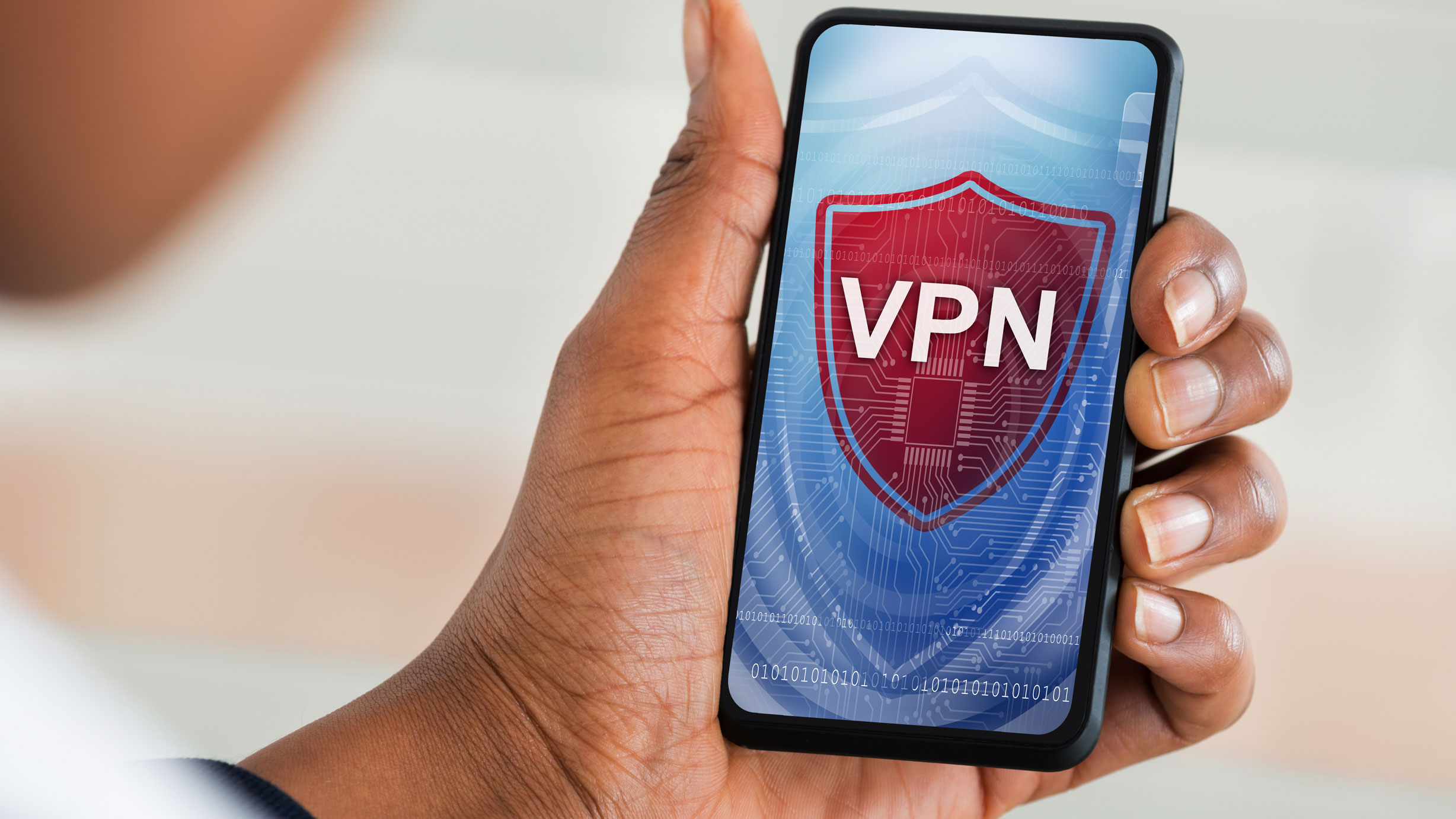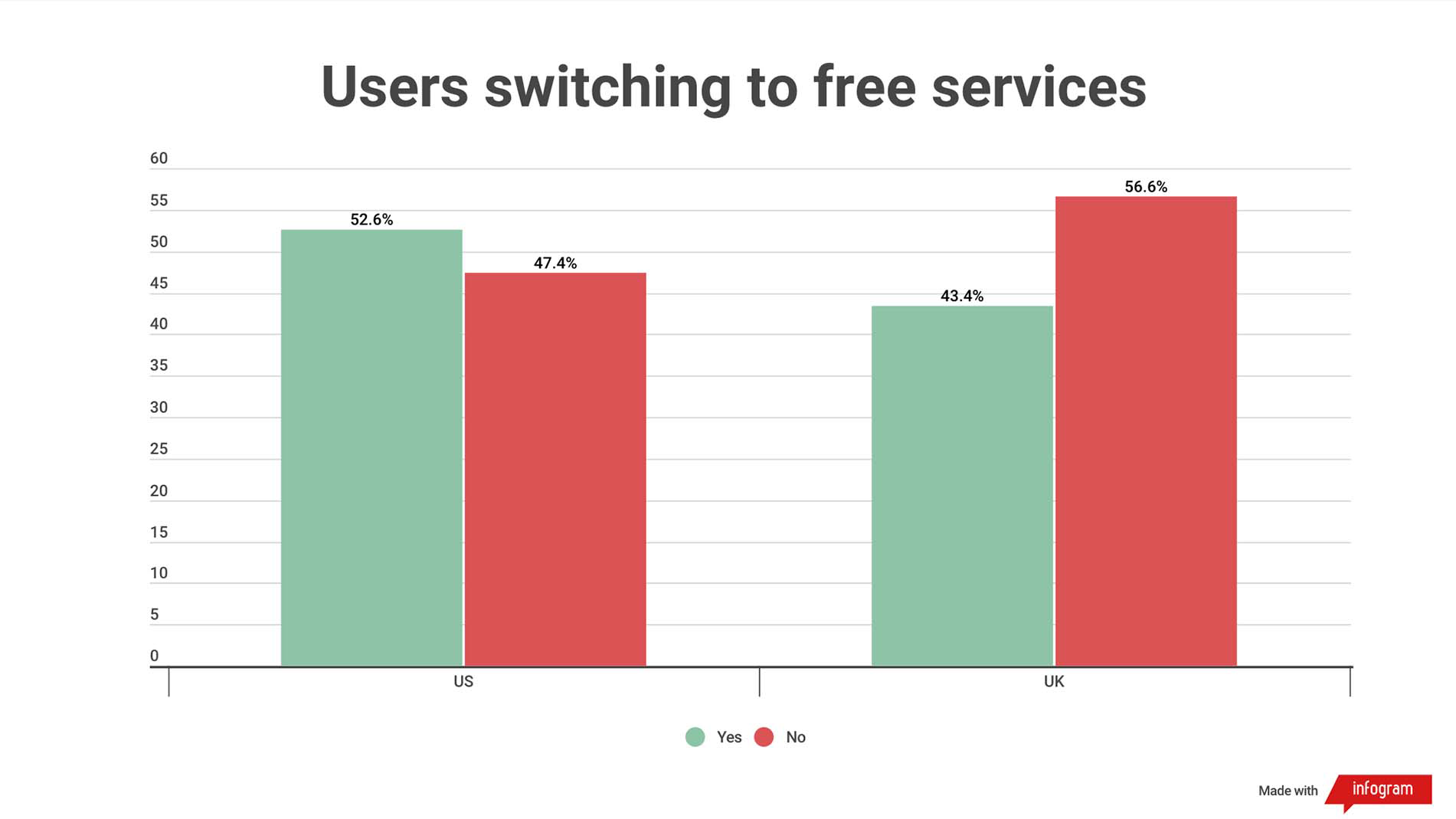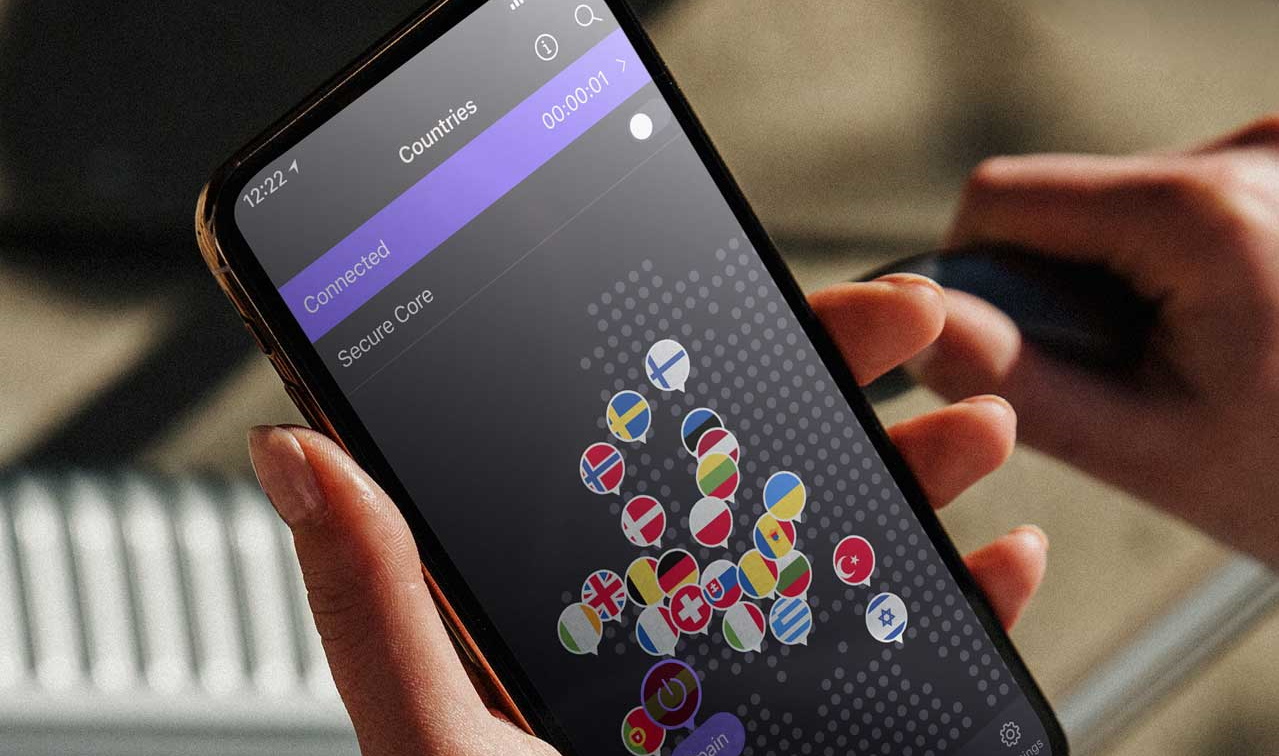Exclusive: Free VPNs are on the rise, but so are the risks for your privacy
About 60% of users are now switching to free services

Sign up for breaking news, reviews, opinion, top tech deals, and more.
You are now subscribed
Your newsletter sign-up was successful
With the price of living going up and a global economic recession on the way, it's not so surprising that people are looking to save as much money as they can. That's probably why free VPNs have seen a surge in popularity lately.
An exclusive TechRadar Pro poll carried out by OnePulse shows that an increasing number of VPN users have been actively looking to switch from paid subscriptions to free alternatives.
While in the UK around 47% of respondents replaced their premium services with a no-fee counterpart, about 60% of those living in the US seem to now opt for a freebie instead.
That's worrying as free VPNs have been in the news many times for failing to protect users' data. Bean VPN is only the last service that was found guilty of leaking millions of users' records.
With the demand for best VPN services offering paid plans seems to be in decline, the risks for your privacy are on the rise as never before. Here, everything you need to know.

The risks of free VPN services
Despite not paying for a VPN subscription sounds tempting, you should know that this might come at a higher cost for your privacy.
The most obvious issue is that for making a profit, many no-fee services need to turn to advertising to make a revenue and keep the software running. As an analysis on 283 Android apps revealed, 72% of the free services included at least one third-party tracking library against only 35% for the premium versions.
Ads popping out on your screen do not only disturb your online experience, but they also collect and share some of your personal information. And that's probably what you are trying to avoid by using a security software. What's more, they might end up to even infect your device with malware or viruses.
As Bean VPN's case confirmed once again, free services aren't often built according to the same security protection standards as paid-for versions. This means that users' databases are more vulnerable to attacks.

Also the ownership behind these services can be a reason for concerns. An investigation carried out by Top10VPN on the 30 most popular apps on Google Play found out that 59% of these VPNs had hidden Chinese ownership. This is quite disturbing if you think that the Great Firewall of China is actually infamous for intrusive internet restrictions, growing online censorship and a strict VPN ban.
Beside privacy, free VPNs generally have problems unlocking different catalogs on streaming platforms and achieving faster connection speeds too. If you are looking for a reliable streaming VPN, you should then go for a premium version instead.
The best free VPNs right now
As a rule of thumb, if you care about your privacy you should avoid solely free VPN apps. However, there are a few premium software offering a secure version without the need to put your hands on the wallet.
Our #1 recommendation right now, the Swiss-based Proton VPN has a reliable free plan that can be really useful to those looking to switch to a no-fee subscription. Even though it comes with some limitations - you cannot unlock foreign streaming catalogs or safely torrenting, for example - it offers unlimited data bandwidth, three secure servers and some unusual security features for a freebie like split tunneling and DNS leak protection.

If you are after a good torrenting VPN instead, PrivadoVPN boasts servers supporting P2P sharing. It might work with some streaming platforms, too. Despite having a data limit, 10GB per month might be more than enough for most people.
Other good premium VPNs offering free plans include Windscribe, TunnelBear, Hotspot Shield and Hide.me.
If you are looking for more flexibility, you might want to consider a premium provider offering a free-risk trials. All our best VPN services offer a 30 or 45 days money-back guarantee. Even though you will have to invest some money upfront, you will be refunded if you decide to cancel your subscription before your time is up.
Sign up to the TechRadar Pro newsletter to get all the top news, opinion, features and guidance your business needs to succeed!

Chiara is a multimedia journalist committed to covering stories to help promote the rights and denounce the abuses of the digital side of life – wherever cybersecurity, markets, and politics tangle up. She believes an open, uncensored, and private internet is a basic human need and wants to use her knowledge of VPNs to help readers take back control. She writes news, interviews, and analysis on data privacy, online censorship, digital rights, tech policies, and security software, with a special focus on VPNs, for TechRadar and TechRadar Pro. Got a story, tip-off, or something tech-interesting to say? Reach out to chiara.castro@futurenet.com